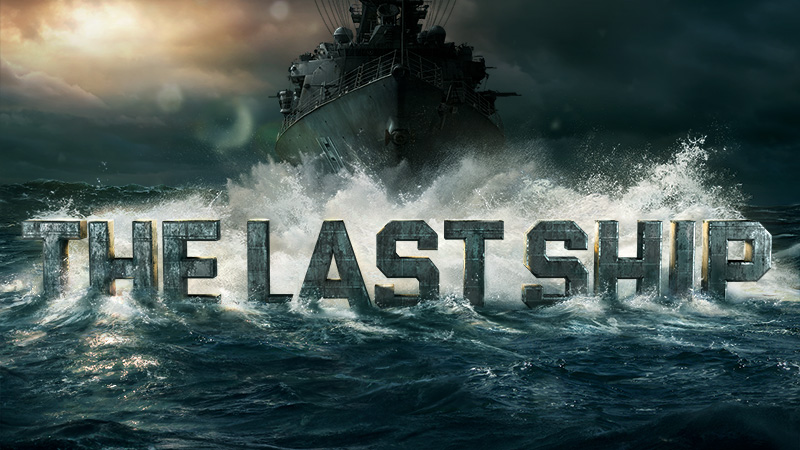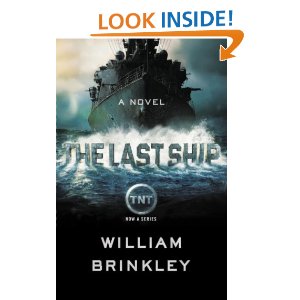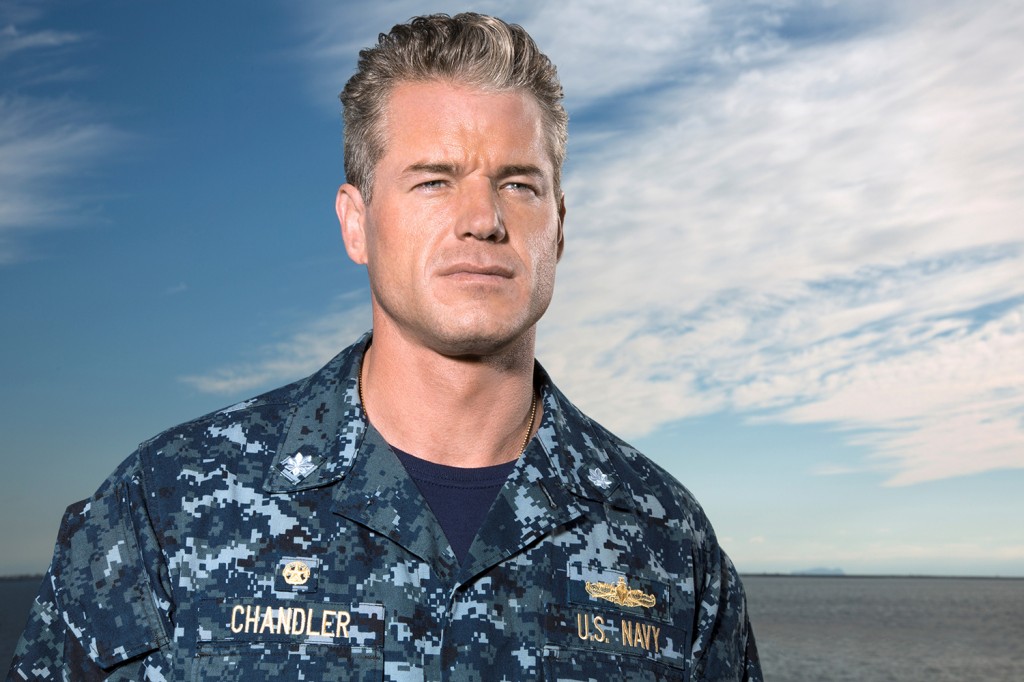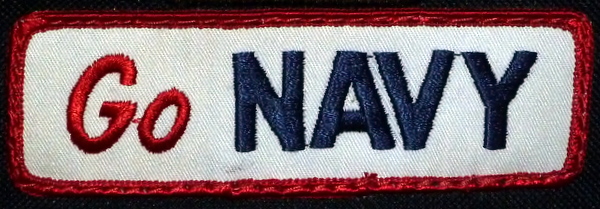
The Last Ship, on TNT, Summer 2014
The Last Ship on TNT is one of those shows where I watched the trailer and thought, hmm, this could be interesting… if they get the Navy part right. I’m the child of a Naval officer, and while there are a lot of things that a show about the Navy can get wrong and I won’t notice it, there are many things that I want them to get right. Some I might even go so far as to say I need for them to get right. And that’s as someone who did not serve in the military.
After watching the first episode I reached out to a retired officer who had served for more than a decade as a Public Affairs Officer and casually asked, “are you or any of your retired Navy buddies watching The Last Ship?” I got a shake of the head and a basic, “haven’t heard much.” I’ll admit I was disappointed. I had hoped it would be the beginning of a conversation about a show that had intrigued me. I let the topic drop, for the moment, but not die.
 Instead, I found the wikipedia page for William Brinkley who wrote the novel the show is based on (perhaps more accurately said inspired by given the novel was written in 1988 and much has changed in the way of both technology and politics since then) and again brought up the topic when I saw the same retired officer days later. This time by handing him a print-out of the wikipedia page and saying point blank, “I thought the Naval Service section might catch your eye.” It turns out William Brinkley had served in the Navy in World War II, as a Public Affairs Officer.
Instead, I found the wikipedia page for William Brinkley who wrote the novel the show is based on (perhaps more accurately said inspired by given the novel was written in 1988 and much has changed in the way of both technology and politics since then) and again brought up the topic when I saw the same retired officer days later. This time by handing him a print-out of the wikipedia page and saying point blank, “I thought the Naval Service section might catch your eye.” It turns out William Brinkley had served in the Navy in World War II, as a Public Affairs Officer.
For those with no Navy ties, perhaps I should note that the duties of a Public Affairs Officer range from dealing with the press, helping with the making of training videos, to reading scripts from television shows and movies and deciding if the Navy will cooperate with the filming.
Ever noticed that tag line in the end credits, we’d like to Thank The US Navy, or we would like to thank specific officers? Or wondered how movies were able to get active duty military personnel to be extras on camera? A Public Affairs Officer was contacted, read the script, and after a protocol was followed and approval was granted it all made it to the screen, but had that PAO (Public Affairs Officer) said “No,” extras would have been hired instead of active duty personnel.
Now, what answer did I get to the Wikipedia page about William Brinkley? Turns out he was a bit of a legend among the PAOs when this officer was a PAO in the late 60s and throughout the 70s. In fact, he recalls reading one of Brinkley’s books, Don’t Go Near The Water when he was in ROTC in College preparing to become an Officer in the Navy.
It felt as though I was seeing a very real attitude shift before my very eyes. From doubt that the Navy was being portrayed as accurately as possible, to disappointment that he hadn’t known sooner he might have enjoyed tuning in. He remarked that from the first time he had seen a commercial for The Last Ship he had been reminded of On The Beach, a book, and movie he fondly recalled from his youth, which from his Navy days felt particularly well titled.
Like the Last Ship, On The Beach was about coming ashore to realize what you’ve left behind is gone, though for very different reasons. On The Beach gained it’s title from the fact the men at sea are forever reminiscing about what is going on, in the real world, On The Beach. Where The Last Ship gains it’s title from the feeling that, to their knowledge, they are the last ship, in the U.S. Navy, afloat with a full healthy compliment of officers still on mission.
With this new information in hand I hit the internet again, and found myself chuckling that according to the wikipedia page for the novel The Last Ship, the Wall Street Journal favorably compared the book, when it was first released, to On The Beach. It would appear my former PAO knew what he was talking about.
After reading about William Brinkley, and fondly recalling his reputation among the PAOs, derived in large part because of his books published after his naval service, the PAO was now interested in talking about the show and deciding if he would like to, at some point, watch it. He was not ready to commit, he was not sure he could set apart that portion of his brain that likes to see the chain of command properly represented, the uniforms properly costume designed etc… but he wanted to hear more. (It can be hard, when you lived and breathed it for over 20 years, to overlook the details and accept the world being created as “close enough”.)
So I told him about the three episodes I had watched. Part of what fascinates me is the casting of Eric Dane as Commander Thomas Chandler. (Yes, since childhood I have loved that the Captain of the ship is a Commander, and most of the officers I knew were NOT Captaining a ship when they attained the rank of Captain. I always found that funny as a kid.) Fans of Grey’s Anatomy will remember Eric Dane as Dr. “McSteamy” Mark Sloane, with a wink for every woman, and a flirtatious moment for every episode, this man earned his McSteamy moniker. But a Navy Captain can not be McSteamy. It simply can not be. 
The Captain of a Navy ship does not hang out with the majority of his crew, he is not buddies with each and every individual, though he knows who is who on his ship. He stands apart. He makes the tough calls. He is responsible for every life on that ship. It is a tough position when everything goes wrong. He is a man who knows he may have to give some very tough orders, but his crew respects him (if he is a good Captain) because he is the kind of man who would never give an order he himself would not take/obey.
The Captain has the respect of his crew, he needs to have earned the respect of his crew, and he needs to be someone who the crew wants to earn the respect of. This is a tough role, and it is not a role for McSteamy. It is however a role Eric Dane is excelling in. With a more stoic approach, playing a character with a wife and kids at home, this character has his eye firmly on the mission, on the goal of saving humanity and taking each step forward as it comes.
 Rhona Mitra is Doctor Rachel Scott, a virologist who may be one of the few people, perhaps the only person, who can figure out a cure for the plague ravaging humankind. She has made mistakes since coming on board the Nathan James 6 months ago, and yet, because she alone has the skills needed to save us all, Captain Chandler at one point tells her in no uncertain terms “You have nothing to prove.”
Rhona Mitra is Doctor Rachel Scott, a virologist who may be one of the few people, perhaps the only person, who can figure out a cure for the plague ravaging humankind. She has made mistakes since coming on board the Nathan James 6 months ago, and yet, because she alone has the skills needed to save us all, Captain Chandler at one point tells her in no uncertain terms “You have nothing to prove.”
This is a show with a lot of supporting characters, the pilot has some scene stealing moments by Frankie (Played by Kevin Phillips), who gives hints of just how emotional and deep these scripts have the potential to go, if they choose.
In the first three episodes they deal with the realities of life aboard ship. They touch on the experience of living in a community of a thousand people, the importance of standing united in the face of trying times, and intrigued me enough to want to keep coming back for more.
As for how accurately and realistically they are portraying the Navy… when I gave the retired PAO an example of one scene that really caught my eye, that made me stop and smile with a yup, that would happen, he had the same reaction. He nodded and while he did not promise to tune in to future episodes, when I offered to record them and he could watch some with me, he sounded interested. I’m enjoying the show, I’m coming back week after week… and I’m not seeing anything that’s jarring my awareness and throwing me out of the experience, rather I’m caught up in the action, wanting to see how the story unfolds, wanting to see where the plot goes next, and hoping to find out more about these people and how they will survive in this new era.

Go Navy – circa 1970s
Fans may recognize Rhona Mitra from Boston Legal, The Practice, The Gates, or the Life of David Gale and Eric Dane from Grey’s Anatomy. The Last Ship also stars Adam Baldwin of Firelfy, Serenity, Daybreak and Chuck,
William Brinkley Wikipedia Page
The Last Ship (Novel) Wikipedia
On The Beach (Novel) – Wikipedia
Amazon.com The Last Ship Novel (eBook or Paperback) 2014 re-release






